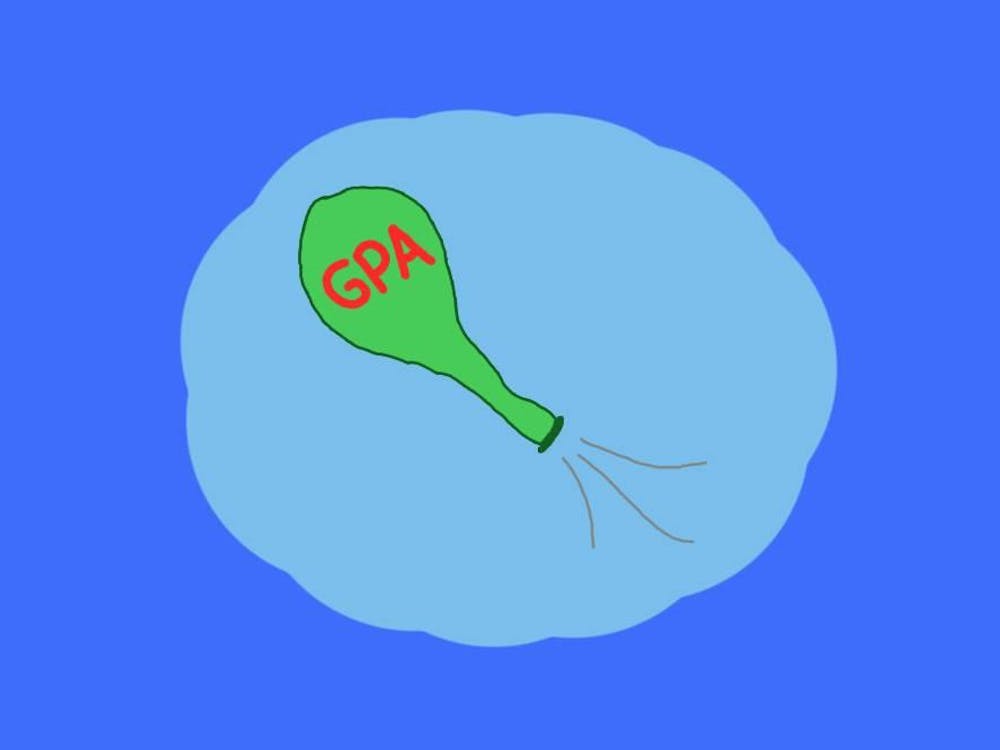LAST WEEK the Managing Board of The Cavalier Daily editorialized that downloading MP3s off Napster, although a form of theft, isn't serious in our community. At least student jurors won't think it's serious, they say. This begs the question of whether or not this should be an honor offense -- something the Honor Committee needs to figure out if it's to be anything more than irrelevant.
An honor system that values students doesn't use them as mice in their experiments. Therefore students should expect the Committee to publicize what is and isn't an honor offense -- otherwise we only learn what the particular honor offenses are after a student has been convicted. It is grossly unfair for the Committee's refusal to think to become the students' burden.
|
The Committee should see that downloading MP3s from Napster is stealing and -- given its treatment of other stealing matters -- they also should see that it's serious.
Stealing is taking what's not yours and failing to offer fair compensation for doing so. The Washington Post editorializes, "Unlicensed large-scale copying is clearly a form of theft; it could weaken the incentive to create; it should therefore be prevented both online and off." ("Grappling With Pirates," July 30.) Even Committee Chairman Thomas Hall in an e-mail response says of downloading MP3s: "I feel certain that no Honor Committee member would argue that it is the right thing to do."
One could only hope. But it's not clear that this bold stand also is that of the students. If you pocket a pack of gum, you feel that you have deprived its seller of 50 cents. For if you were to announce that you were going to buy the pack of gum for zero cents, the seller would probably have denied you that sale. This announcement test is a fair test to determine if you're stealing. Artistic expression may not be tangible, but it is valuable property of the musicians. Taking it clearly doesn't survive an announcement test because there's so much talk on the part of the music industry and on the part of established artists about this topic.
As with the Honor Committee, most students probably don't disagree that downloading MP3s is stealing. Rather, students probably take issue with the argument that it's serious.
It is.
It's the Committee's institutional stance that intentional check bouncing is serious stealing. It's stealing because if you announced to the seller that you were planning to bounce your check, the store clerk probably wouldn't have handed you that bag of groceries. The Committee even has a check bouncing committee to deal with these issues. The point is that check bouncing is a way of depriving another of what is owed to him. Taking MP3s denies artists royalties owed to them. If you bounce a $10 check and you steal a $10 album, what's the difference? How is it that one is serious and the other isn't?
Plagiarism is the taking of someone else's intellectual property without acknowledgement, or in property lingo, without just compensation. The Committee defines plagiarism as "using someone else's ideas or work without proper or complete acknowledgement." Applying the announcement test, if you asked Milton Friedman if you could claim his money supply rule as your own work without paying him a bibliographical tribute, he probably would deny you that opportunity. If plagiarism is an honor offense, then surely a variant on it -- downloading MP3s -- also is.
The irony is that at the University our output is chiefly intellectual property -- books, theories, ideas, and education for students. The University community should most acutely understand that intellectual property is just as inviolable as physical property. When we fail to bring this understanding into our everyday dealings, into our codes of honorable conduct, we are making a twisted statement about education, namely that it's worthless to learn and own ideas. In short, we're saying it's bad to think.
The Napster lawsuit is a complicated matter that I don't presume to resolve. But there's no question that Napster's users are thieves. So the Committee has a role in combating its abuse here on Grounds. If they don't, on the theory that it's not serious, they need to tell the University community what in particular is not serious about it. They'll have to square it with how they handle check bouncing and plagiarism.
The Committee's constitution says that the "Honor Committee shall: Determine and publicize" what an honor offense is. So we can expect that the Committee will either tell us that downloading MP3s is an honor offense or they'll give us an explanation of why downloading MP3s isn't serious. We shouldn't tolerate any less.
(Jeffrey Eisenberg's column appears Mondays in The Cavalier Daily.)




